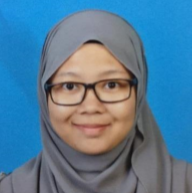
Noradilah Sham
PhD in Transport engineering
Malaysian Government Scholarships
My name is Noradilah. I am a PhD student at Monash University since 2019. I completed a Bachelor of Engineering with honors (Civil Engineering) and Master of Science in Highway Engineering at Universiti Teknologi MARA, Malaysia in 2013 and 2015. My research interest includes travel behaviour, incentive allocation, and public transport.
PhD Project: Fare Integration Strategies in Mobility as a Service
Increasing vehicular travel and environmental issues are trends increasing the pressure on urban transport systems. The new concept of Mobility as a Service (MaaS) is one approach to tackle these challenges by providing one single application that integrates all transport modes, payment, and services. Like the new mobility on demand services (e.g. Uber), MaaS offers the promise to improve flexibility and accessibility. However, it is not clear that MaaS will deliver sustainable mobility solutions. The uncertainty rests not only on technologies but also on users (needs, preferences etc.), and the evolution of the existing mobility system, as well as the balance between sharing mobility and private vehicle use. Most literature focuses on the definition of MaaS and its organisational challenges (ecosystem, technologies, integration of modes). The frequent claims about the positive contributions that MaaS will make towards sustainability goals rely on a scattering of limited research findings.
In light of these, this research aims at exploring opportunities and policy designs to shape how the future MaaS system and travel demand management (TDM) could potentially deliver better and sustainable urban mobility solutions. Specifically, the research focuses on understanding users travel behaviour and preferernce over MaaS service, evaluating and designing fare integration and allocation strategies in a way that they can incentive the key stakeholder (user, driver, and operator) to participate and collaborate in the MaaS system in order to achieve system and social objectives, such as energy consumption savings, social equity, and operational effectiveness.